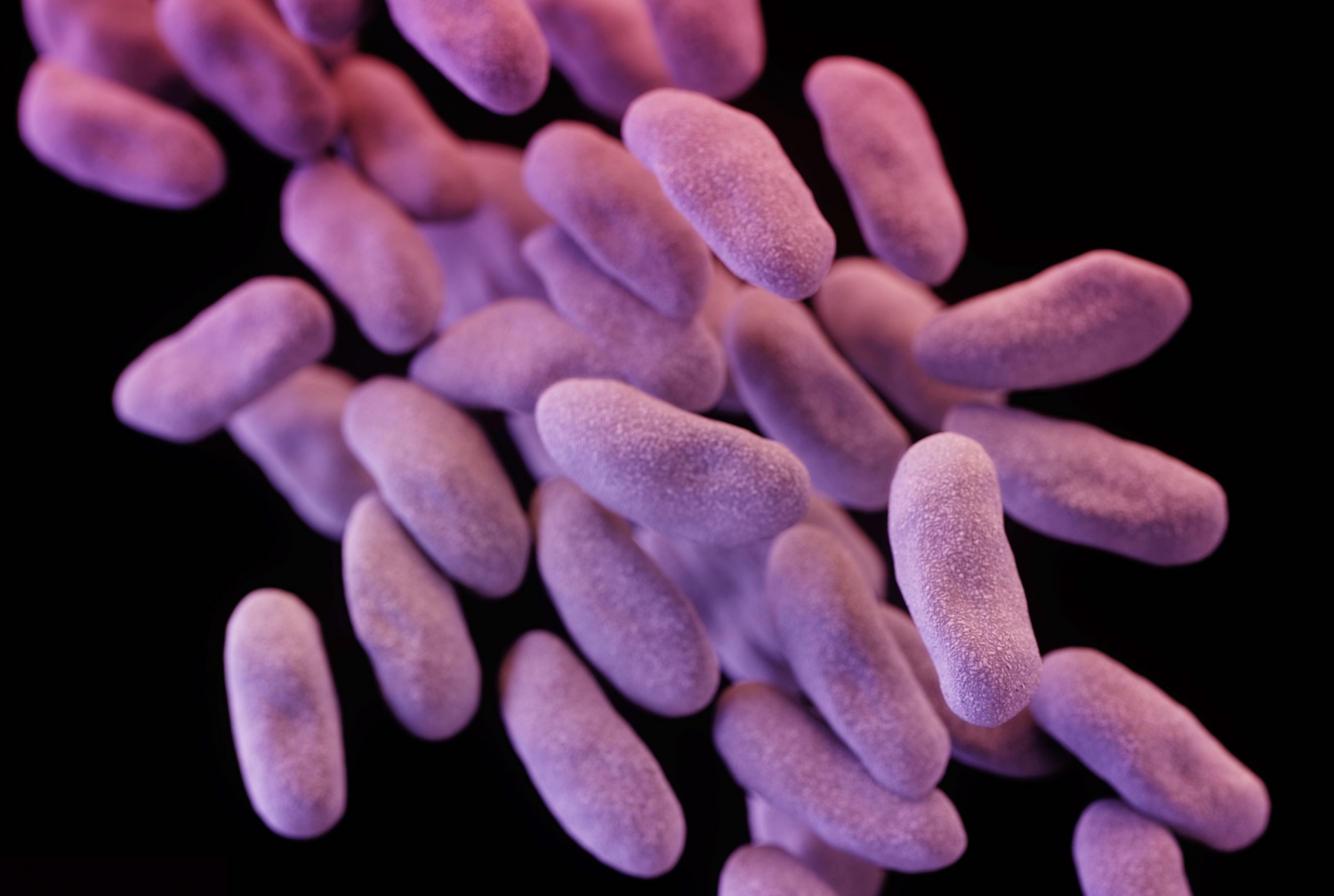Medical illustration of carbapenem-resistant Enterobacteriaceae.
Dr. Michael Satlin’s patients aren’t just battling cancer. Many are also fighting drug-resistant bacteria — “superbugs” that threaten their fragile immune systems, and their lives.
“They can die within hours or days of infection if they’re not properly treated, because they have no immune system,” explains Dr. Satlin, an assistant professor of medicine in the Division of Infectious Diseases at Weill Cornell Medicine. His patients typically spend weeks in the hospital to receive intensive chemotherapy or bone marrow transplants to treat acute forms of leukemia or other blood cancers. The goal is remission, but both the cancer and treatments for the disease can reduce the body’s levels of healthy white blood cells, which fight infection.
“It can take days for the lab to figure out what they’re infected with and which antibiotic they need,” he says. “But we can’t take the chance of not starting an antibiotic right away.” What’s more, these patients are highly susceptible to hospital acquired antibiotic-resistant infections, including carbapenem-resistant Enterobacteriaceae (CRE), in part because antibiotics and chemotherapy can disrupt the composition of gut bacteria. These drug-resistant bacteria can also spread to other seriously ill people who have disrupted microbiomes, collections of microbes living in the body.
Now, with his upstate colleague Dr. Ilana Brito, Dr. Satlin is studying how genes that lead to resistance to antibiotics proliferate in the gut. The two recently received a $500,000 grant from the Centers for Disease Control and Prevention to learn more about antibiotic resistance in leukemia patients and transplant recipients with neutropenia, or low levels of infection-fighting white blood cells.
“These are nasty bacteria that should keep us awake at night,” says Dr. Brito, an assistant professor of biomedical engineering at Cornell University’s Meinig School of Biomedical Engineering.
“We are developing new technologies to monitor and track genes in ways not previously done,” she says. “If we can understand how these genes spread, we could interfere early to halt the spread of drug resistance.”
The collaboration between Dr. Brito in Ithaca and Dr. Satlin in New York City could ultimately affect the 20,000 adults diagnosed with acute myeloid leukemia each year, as well as other cancer patients treated with bone marrow transplants.
“Our expertise nicely dovetails with each other’s,” says Dr. Brito, who has implemented metagenomics — the study of entire microbial communities — to learn how genes can transfer between organisms.
“I’ve always wanted to work with someone who would investigate the microbiome and resistance from a metagenomic standpoint,” says Dr. Satlin, whose research emphasizes multidrug-resistant infections in transplant recipients and blood cancer patients. He says that Dr. Brito has the expertise to apply new and exciting technologies that will allow them to characterize the gut microbiome and the spread of antibiotic resistant genes in ways not possible until recently.
As work begins on the project, stool samples from Dr. Satlin’s patients are being frozen and shipped to Dr. Brito’s lab for evaluation. “If we know the genes a person is carrying in their microbiome, then perhaps those could be tested in real time,” she says. The hope is to be able to identify the specific antibiotic that would work for each patient with an immune system compromised by cancer treatments. Dr. Satlin adds, “The strategy is to personalize antibiotics instead of all patients getting the same one.”
Meanwhile, the research partners continue to learn from each another. “We come at it from different perspectives,” Dr. Satlin says. “She has a skill set I don’t have.” He cites Dr. Brito’s experience characterizing microbiomes in populations in Fiji — a first-of-its-kind study designed to compare mobile genes among diverse populations around the world, which could provide insights for determining how genes lead to antibiotic resistance in cancer patients.
Dr. Satlin’s clinical experience with neutropenic leukemia patients prompted Dr. Brito to suggest that they work together. “He knows the infections they normally present with and the antibiotic-resistant genes those pathogens carry,” she says.
“We have started to teach each other about what we do,” Dr. Satlin says.
Dr. Brito adds, “It’s a most wonderful collaboration.”

